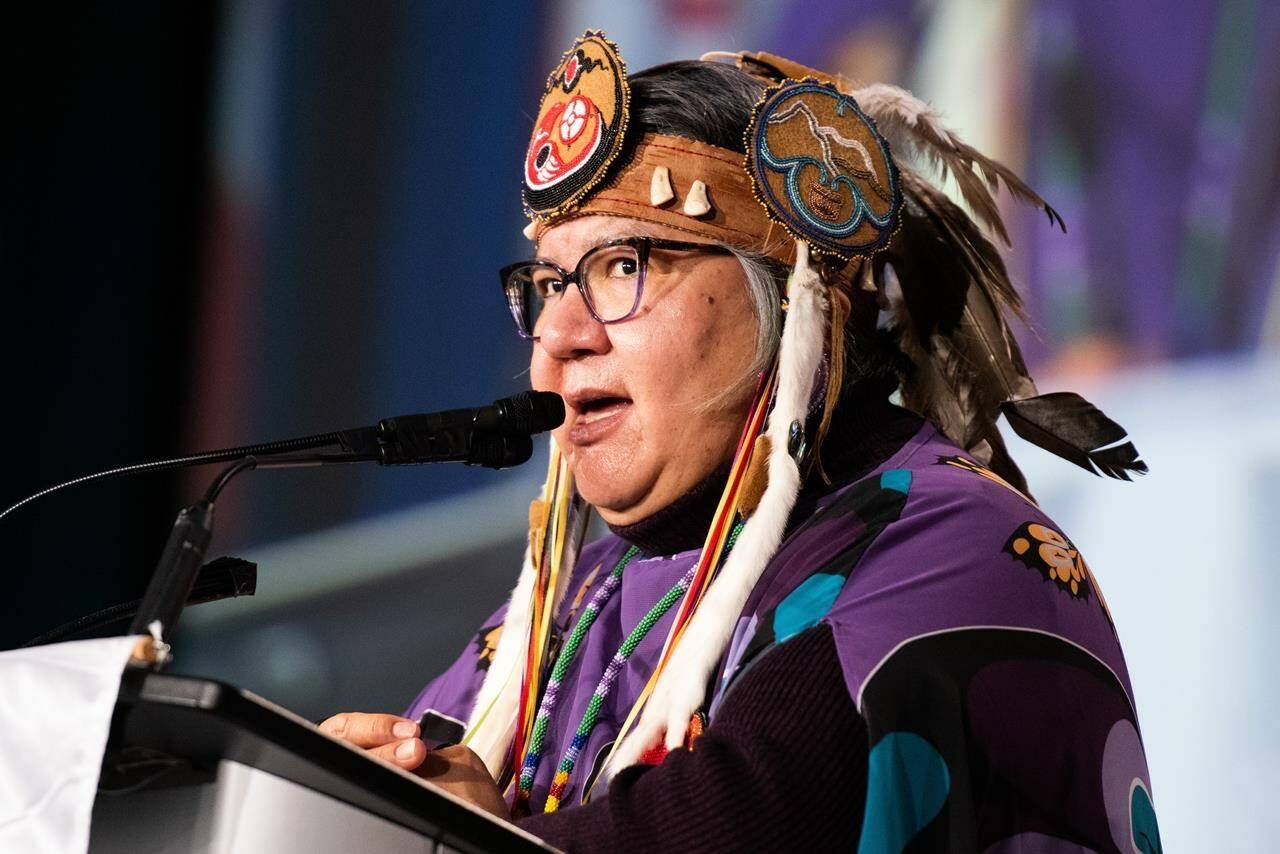Assembly of First Nations National Chief RoseAnne Archibald says advancing “economic reconciliation” must go hand in hand with helping communities heal from intergenerational trauma.
She says the federal government needs to strike a balance between the two issues — and sees both the governing Liberals and Opposition Conservatives as missing a piece in their respective approaches toward reconciliation with Indigenous Peoples.
Speaking after the release of Tuesday’s federal budget, the national chief said Prime Minister Justin Trudeau has failed to create more economic opportunities for First Nations and that a new “economic deal” with Ottawa is needed.
But she also said the federal Conservatives “might be missing” the need for the federal government to help communities heal from the legacy of residential schools, which comes to the surface every time a First Nation announces the discovery of possible unmarked graves.
“You have to have both the economic deal and you also have to have the ways and means to heal this intergenerational trauma,” Archibald said in a post-budget interview, adding she believes the federal government should establish a “national healing fund.”
“We have to move the yardsticks in a balanced way, and I think that’s what the Conservatives might be missing,” she said. “The Liberals, on the other hand, are missing the economic piece.”
Conservative Leader Pierre Poilievre has framed his reconciliation agenda around economic matters, promising that if he wins power, he will create more ways for First Nations to access revenues from natural resource projects developed on their land.
The Liberals have committed to exploring the same, pledging almost $9 million in the new budget to consult with Indigenous leaders on what a “national benefits-sharing framework” might look like.It was one of the only measures in the spending plan that Poilievre voiced support for.
Dakota Kochie, who was a chief of staff for Perry Bellegarde when he served as national chief, said it appears the Liberals are “at least taking the first step to figure out what does a national economic reconciliation strategy looks like.”
Also included in the budget plan is a commitment to have Indigenous Services Canada spend $5 million on co-developing an economic reconciliation framework.
The document also promises to fund initiatives to increase Indigenous participation in the assessment process for infrastructure projects, including those that extract resources from their territories.
With the Liberals proposing to spend $83 billion on clean-technology investment tax credits until the 2034-35 fiscal year, the government should seize an opportunity for Indigenous Peoples to be included and fully consulted, Kochie said.
He predicted that finding more ways to include Indigenous people in the economy will be a major issue for the next decade.
Adding equity and inclusion into infrastructure projects “has the benefit of completely transforming the economic relationship that Indigenous people have with Canada,” he said.
“If they feel like that they have access to a safe job, a well-paying job, potentially unionized job, that really helps shift the economic outlook for First Nations people.”
And if they have a chance to get hired into jobs close to their communities, that’s even better, he said.
—Stephanie Taylor, The Canadian Press
READ MORE: Reconciliation delayed and anti-Indigenous racism rising: TRC commissioners

